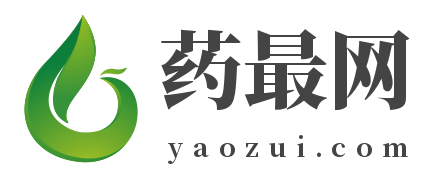在美国,尽管目前有十几种中成药正在进行临床试验,但以药品名义成功注册的中成药仍未实现0的突破,商会中医部主任于志斌说到。
在含提取物和原料在内的中药出口项目中,2017年中国专利药品的出口呈现最强反弹,同比2016年增长11.03%。
2017年,中药提取物出口同比增长4.33%。提取物通常用作化妆品和食品补充剂的成分,通常在中药出口的占比最大。
TCM exports up as local firms ride B&R Initiative
By Liu Zhihua | China Daily | Updated: 2018-08-27 10:57

Staff at a testing center for traditional Chinese medicines or TCM prepare samples in Bozhou, Anhui province. [Photo by Liu Qinli / For China Daily]
Traditional Chinese medicine or TCM exports are rising on the back of resilient demand from traditional markets and as the Belt and Road Initiative stimulates new demand in participating countries and regions.
China exported 358,000 tons of TCM in the form of patented drugs, extracts, and raw materials in 2017, up 0.7 percent year-on-year. Export value was $3.6 billion, up 2.1 percent, according to the China Chamber of Commerce for Import and Export of Medicine and Health Products.
"Southeast Asian countries have a tradition of using TCM, and international demand is rising driven by the Belt and Road Initiative," said Yu Zhibin, director of the TCM department at the chamber.
Agreed Wang Tao, director of the overseas business unit of China\'s leading pharmaceutical Taiji Group. "As the Chinese economy grows fast and has a stronger presence in the world, Chinese brands are enjoying more recognition worldwide.
"The Belt and Road Initiative especially helps promote TCM, as communication between China and other areas produces greater understanding of China and its culture."
Taiji Group accelerated its global expansion in 2015 with the establishment of an overseas business unit. It has been eyeing the increasing popularity of TCM in foreign countries and related business opportunities presented by the Belt and Road Initiative.
Since then, the annual export value of its TCM medicines has increased from less than 2 million yuan ($293,000) to more than 20 million yuan.
Quite a few companies from African countries have contacted Taiji Group proactively, seeking partnership to import Chinese medicines into Africa.
"Heatstroke and other symptoms such as gastric discomforts are quite common in Africa, and they believe Chinese medicines that can relieve such ailments will be very popular there," Wang said.
Taiji Group\'s signature product, Huoxiang Zhengqi Liquid, an oral liquid medicine to treat symptoms caused by summertime heat and dampness, such as acute headache, vomiting, diarrhea and abdominal pain, has been registered and exported to five Southeast Asian countries, including Thailand and Malaysia.
The drug is about to enter seven more countries, including the Philippines, India and Pakistan.
In Southeast Asia, a traditional market for TCM, the demand is far from being met, according to Victor Liew, founder of PT.Sky One Healthcare in Indonesia, a company that imports and sells Chinese patented medicines.
"The market demand for TCM is surprisingly huge in Southeast Asia, and the company\'s revenue is ever-growing," Liew said, declining to reveal annual revenue and growth rate of the company.
PT.Sky represents more than 30 titles of Chinese patented medicines in Indonesia, which are imported from large-sized Chinese pharmaceutical companies, including Xiuzheng Pharmaceutical Group, Taiji Group, and Sunflower Pharmaceutical Group Co, with more than a dozen titles undergoing drug registration process in the country.
The company has never had any overstock problem since it was established in 2010, and in 2017, it paid $20 million to Chinese pharmaceuticals for importing Chinese patented medicines, Liew said.
Its clients are pharmacies from across Indonesia, and it also sells the medicines through more than 50 online shopping platforms.
Most popular titles include immunity-boosting medicine, drugs that mitigate diseases and relieve symptoms common in tropical regions, such as heatstroke and gastric ailments, or that can improve sleep, according to Liew.
Chinese immigrants and their descendants have helped popularize TCM in the region since ancient times, and as a result, many locals believe in TCM, and regard the ancient practice as having fewer side-effects than Western medicine, Liew said.
There are many TCM practitioners in the area, and imported Chinese patented medicines are particularly popular, because such medicines are manufactured based on time-honored prescriptions that have proved to be very effective, Liew said.
The difficulty in manufacturing such medicines locally due to restrained access to medical formulas and materials, also contributes to the popularity of imported Chinese patented medicines, Liew said.
However, despite overseas consumers\' increasing passion for TCM, only three titles of Chinese patented medicines manufactured by Chinese pharmaceutical companies have been recognized as drugs in the European Union.
In the United States, the corresponding number is zero, although a dozen TCM drugs are undergoing clinical trials, according to Yu, TCM department director with the industry chamber.
Among main TCM export items, including extracts and raw materials, Chinese patented medicine exports delivered the strongest rebound in 2017, increasing 11.03 percent in value from 2016.
Exports of TCM extracts swelled 4.33 percent year-on-year by value in 2017.
Extracts, often used as ingredients to make cosmetics and food supplements, usually take up the largest portion of TCM exports.


